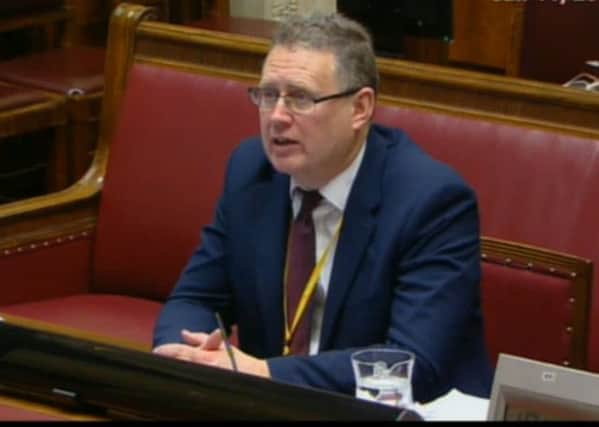DETI ignored lawyer's blunt warning on lack of any RHI cost controls


Marcus Porter said that officials from the Department of Enterprise, Trade and Investment (DETI) had cited the rush to get the scheme launched in case they missed out on available Treasury funding as their reason for pressing ahead with legislation which he believed was defective and which ultimately contributed to the incentive imploding in 2015, leaving a huge liability for taxpayers.
Speaking of the rush to open the scheme to claims in 2012, the Ofgem lawyer – who had worked on designing the GB RHI scheme – said that “inevitably where that is the case with a project of this size there is the risk that things will go wrong ... it is inherently likely”.
Advertisement
Hide AdAdvertisement
Hide AdOfficials have already told the inquiry that they believed it was acceptable to press ahead with the scheme without it having any emergency brake to stop it if it ran out of control because they believed that the next year they could introduce cost controls and make other changes. As it happened, those changes were never implemented until the point at which the scheme had far exceeded its budget three years later and amid allegations that some claimants were abusing the scheme.
On one of several occasions where Ofgem – the GB energy regulator which DETI contracted to run the scheme for it – explicitly warned DETI about what would prove to be some of the key flaws of the scheme, Mr Porter said that in June 2012 he had warned DETI that the GB regulations on which they were planning to base their scheme were deficient.
By that stage – about four months before the scheme went live – Ofgem had been warning DETI for months about problems with the proposed scheme and explaining that Whitehall was moving to introduce an interim cost control mechanism to protect taxpayers’ money was designed.
In effect, Mr Porter said that he had told the officials “if you go ahead and replicate those, DETI, you do so with your eyes open, and they’re not all they could be”.
Advertisement
Hide AdAdvertisement
Hide AdIn the end, DETI did not even stick to what were the imperfect initial GB regulations but removed what had been a crude form of cost control – tiering – from the Northern Ireland scheme, leaving no mechanism whatsoever to control costs.
The inquiry also heard that after the June meeting with DETI, draft Ofgem minutes of the meeting had said that the GB regulations were deficient and presented a risk but a senior Ofgem colleague did not want that included, leading to Mr Porter to argue back in writing that the minutes needed to reflect what was actually said. Mr Porter said that his views as expressed at a meeting had been “watered down” by others but “I don’t know what the motivation was”.
The redrafted minutes “didn’t convey the tone, it didn’t convey the sense of urgency and importance of it that I was trying to get across”, he said.
Backing Mr Porter up at the time, his Ofgem colleague Luis Castro said in a June 29 email: “If it helps at all, I think what is important is that we capture the fact that our clear recommendation to DETI was to wait until recommendations are amended due to the risk the current ones pose”.
Advertisement
Hide AdAdvertisement
Hide AdMr Porter said that the haste with which DETI was attempting to get the scheme launched in late 2012 meant that he had to “hurtle” through some of the documentation.
He said that he found that Ofgem was “getting repeated requests for advice on matters we’d already given a view on” and that there had been “forthright” emails where he had effectively said that there was no point in giving DETI advice because it wasn’t listening to the advice it was being given.
However, although there were strains, Mr Porter denied that it had been a “dysfunctional” relationship.
Recalling the key June 2012 meeting, Mr Porter said: “My particular concern was with the issues in the GB regulations – I wasn’t so concerned at that point about the absence of any reference to cost controls, not least because it seems to be that it was at least implicit in what DETI were telling us – ie that they were going to in effect re-enact the DECC regs, [with] no changes apart from tariff.”
He said that Ofgem were “forthright” but that “it was equally clear from what they were saying that they had made up their minds”.